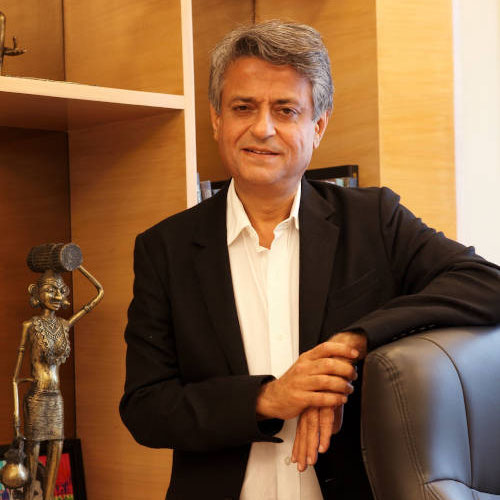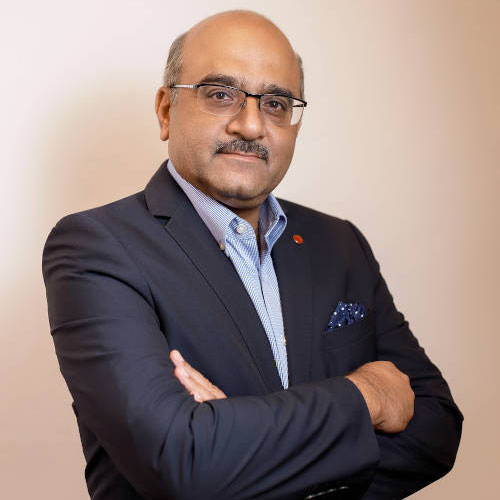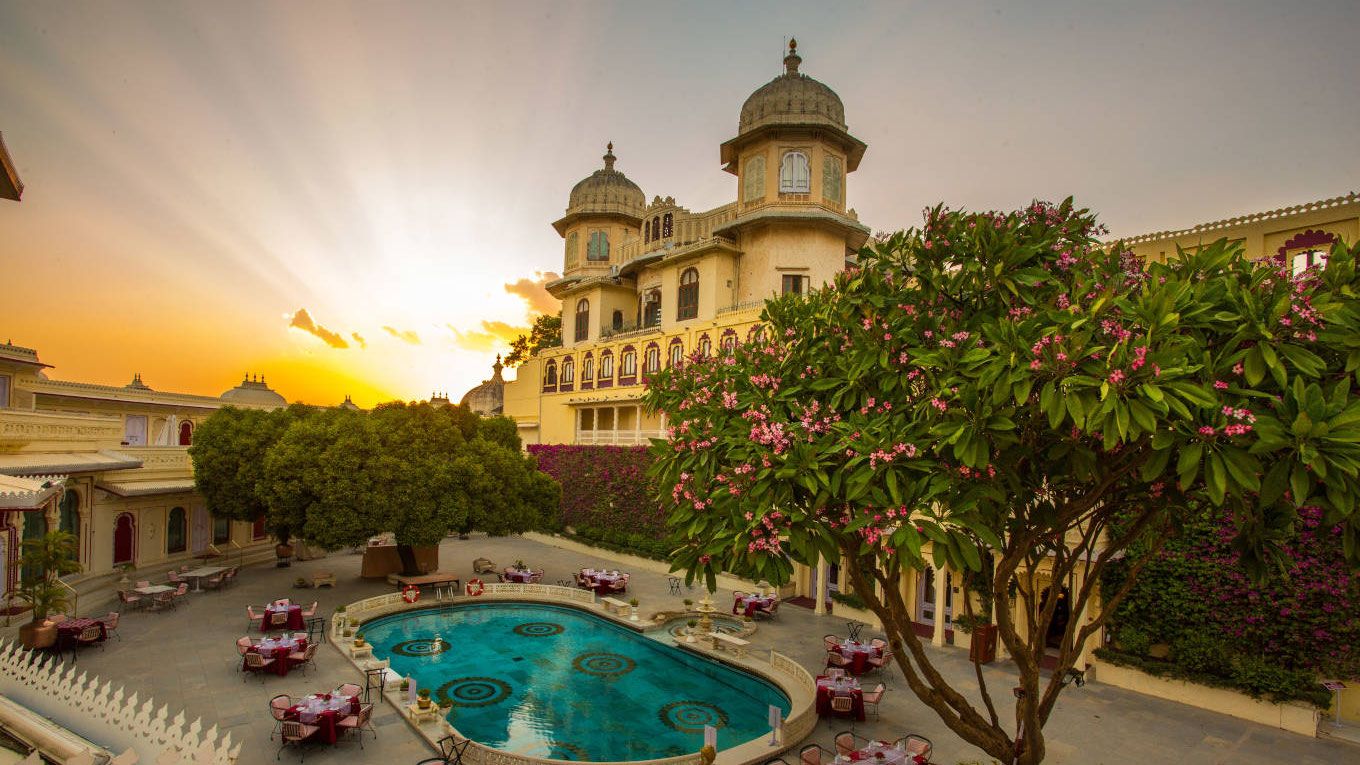-

Keswani: bullish about the sector
For Marriott Hotels, the recovery in Asia Pacific region (India included) stalled between April and June this year due to the strict lockdowns imposed in response to sharp rises in Delta variant cases and low vaccination rates.
Craig Smith, Group President, International for Marriott International, said: “Encouragingly, the recovery is now picking up steam again as cases in India have started to decline. Our footprint spans over 36 cities in India and we anticipate an uptick in domestic leisure travel surrounding the festive and wedding season subject to Covid caseload recovery patterns holding. Overall, we’re seeing the combining of trip purposes: mixing business with leisure or “bleisure.” More flexible remote work environments allow people to travel on more flexible timetables and have led to longer lengths of stay at resort properties. There is a higher percentage of international travellers in the luxury hotels, so until borders open up, occupancy will logically be somewhat suppressed accordingly.” Smith said Marriott is open to strategic acquisitions, affiliations and partnerships in India, going forward.
Key driver
Haitham Mattar, Managing Director, IMEA, IHG Hotels & Resorts, said that domestic tourism has always been a key driver for the hospitality sector and hotels in the mid-market category are popular with domestic travellers. IHG’s mainstream brands, Holiday Inn and Holiday Inn Express, represent 75 per cent of the group’s portfolio in the country.
“Our guests in India are nowadays looking for quick weekend getaways, staycations or intercity vacations which have led to an increase in occupancy across our portfolio. Our hotels in markets such New Delhi and Mumbai are recording over 60 per cent occupancy levels with many hotels also crossing the 80 per cent occupancy mark. Our strong presence and offering in the mainstream category have meant that we gained market share even in challenging times,” he said.
Mattar said given the current circumstances, while full recovery for the corporate travel segment will take time, corporate movement is gaining momentum, especially with a revival in segments like IT, infrastructure, and manufacturing.
IHG is keen on expanding its footprint in India in the post pandemic phase. “There could potentially be some mergers and acquisitions taking place in India, as assets and asset owners may come under financial stress or look to be a part of a bigger chain to have access to more robust systems and resources. We will continue to explore such opportunities where it adds value to our offering,” added Mattar.
-

Smith: anticipating an uptick
Commenting on the much-anticipated mergers and acquisitions in the Indian hospitality industry in the post pandemic phase, Lakshyaraj Singh Mewar of Udaipur, a descendant of Maharana Pratap and Executive Director of HRH Group of Hotels that operates palaces converted into hotels and classic heritage properties in Rajasthan, said: “In good times and bad times, there exist phases of consolidation. I am sure that big hotel chains with deep pockets could invest in new properties or take over the smaller ones. It is quite normal for such business changes to occur. However, we are not in any expansionist mode at this stage. The challenge is to keep the ship steady and sail through these pandemic times.”
He added that there will be a healthy rise in domestic tourism in India. Both for leisure, pilgrimage and ceremonial events like weddings and anniversaries. People living in big cities will feel the compulsion to travel and just be outdoors in the post pandemic years.
Abinash Manghani, CEO of Indian luxury hospitality chain ITC-promoted WelcomHeritage Hotels & Resorts, which operates 40 classic heritage properties across 35 destinations in India, said that the second quarter of the current financial year looks very promising for his hotel chain as occupancy levels and revenues are showing an excellent growth – a rise of 50 per cent on the occupancy levels recorded during the same phase last year. ADR or the average daily rate measure is also witnessing a spurt across most WelcomHeritage properties nowadays due to the sudden surge in demand. Leisure hotels are currently facing an unprecedented demand and will continue to perform better in the future if such properties develop a reputation for quality and safety.
Spoilt for choice
Manghani believes that with the room rates softening across metropolitan cities and the excellent staycation offers available currently, guests are spoilt for choice at the country’s premier hotels. If they can enjoy five-star luxury at affordable rates, there is no inherent logic for the mid-market branded hotels in India to recover earlier.
He said: “In most Indian cities, whether business or leisure destinations, the best and pricier hotels where Covid-related protocols are followed strictly will get maximum business during the pandemic phase. There exists a preference for such small hotels or resorts which are not crowded as guests are willing to pay a premium price for their safety and luxury.”
-

Manghani: the industry will witness M&As
Manghani predicts that the Indian hospitality industry will witness mergers and acquisitions in the future as standalone properties will align with branded hotel chains in the country. “There will be discernible interest amongst the hospitality players from an investment standpoint as many standalone properties will be available at bargain prices at landmark locations across the country.”
Most hospitality brands of India will be skewed towards adopting asset light business models for expanding their footprints across the country in the post pandemic phase. Global hospitality brands too will continue to operate through management contracts and franchise models for expanding their portfolios in India. The Indian hospitality sector is thus likely to witness an intense competition amongst branded hotel chains for signing management contracts through franchise agreements with hotels located at promising locations.
With many Indian citizens now fully vaccinated or having taken at least the first Covid jab and awaiting their second vaccine dose, the travel bug seems to have fully caught them. After the resurgence of another Covid wave, which forced most Indian citizens to stay at home again after March 2021, they seem to be keen on celebrating the upcoming festive season at exotic locations in India. Short distance travel and mini-vacations will perhaps be preferred by most domestic tourists in the near future.
It is undoubtedly good news for the beleaguered Indian hospitality sector which is limping back to normalcy gradually as the country is currently getting vaccinated at a laudable pace and hence most probably will not likely witness a sharp rise in acute cases of Covid in the months to come. Indeed, a hospitable future lies ahead for most hotels in India.





































